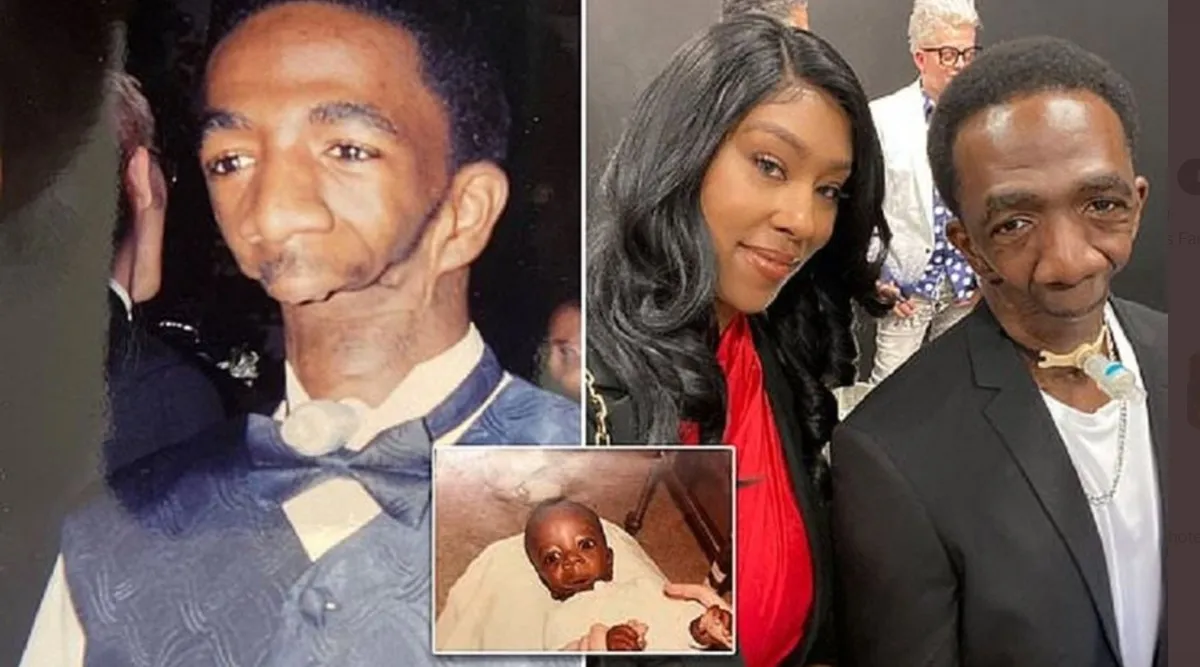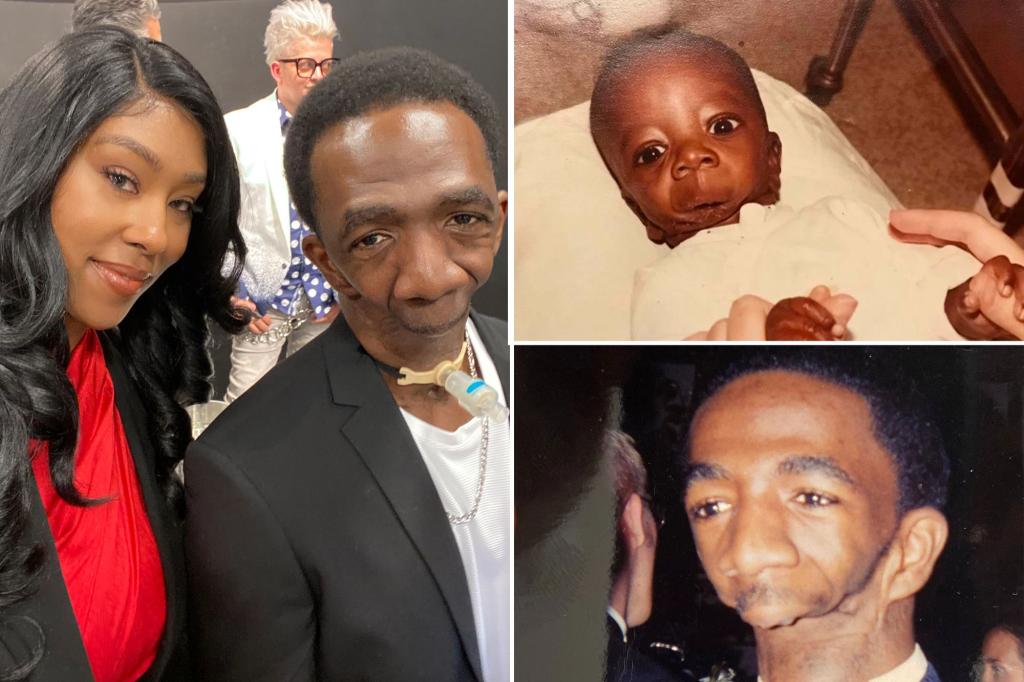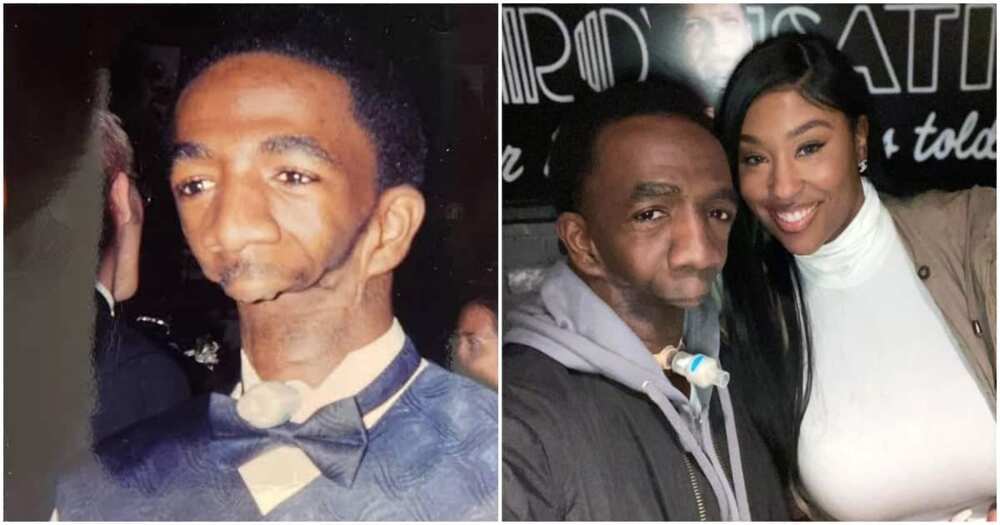People With No Jaw
Living Without a Jaw - Understanding the Human Experience
Life can present some truly unique circumstances, and for some individuals, this includes living without a jaw. It's a situation that brings with it a set of very particular challenges, touching on everything from how one eats to how one communicates with others. This condition, whether someone is born with it or it comes about later in life, certainly reshapes daily existence in ways most of us might never consider.
Thinking about the human spirit, it's pretty amazing how adaptable people can be. Facing such a significant physical difference, those who live without a jaw often show incredible resilience and a remarkable ability to find new ways of doing things. It's a testament, in a way, to the strength found within people, even when faced with what seems like a very big hurdle.
This piece aims to give a clearer picture of what life might be like for people who live with this condition. We'll look at the everyday hurdles, the creative solutions people discover, and the support systems that can make a real difference. It's about shedding some light on an experience that, for many, is quite unfamiliar, and perhaps, just a little, building a bit more appreciation for the varied ways people live.
Table of Contents
- What Does Life Look Like for People Who Have No Jaw?
- The Emotional Side for People Who Have No Jaw
- Can People Who Have No Jaw Eat Regular Food?
- What Does the Future Hold for People Who Have No Jaw?
What Does Life Look Like for People Who Have No Jaw?
Living without a jaw, whether it's a condition someone is born with or something that happens because of an accident or illness, truly changes the way someone experiences the world. Think about how much we use our jaws every single day for things like chewing, speaking, or even just showing how we feel with a smile. For someone missing this part of their face, these simple actions become very complex. It's about finding entirely new methods to get through the day, so. The physical shape of the face is different, of course, and this can lead to needing special ways to eat and communicate, which we will get into a little later.
Daily life for these individuals often means a constant process of adapting. Things that seem automatic for most people, like taking a bite of an apple or saying a clear word, require considerable thought and effort. There are routines involving specialized feeding equipment or communication devices, and these become a pretty big part of their existence. It’s not just about the physical aspects, though; it's also about how they interact with others and how they see themselves, too it's almost. The strength they show in facing these unique situations is quite remarkable, honestly.
Consider the simple act of breathing. The jaw helps keep the airway open. Without it, people might need assistance to breathe comfortably, perhaps through a tube placed in the neck. This means careful attention to hygiene and daily care for that area, which can be a bit of a routine in itself. Every little thing, from keeping the mouth area clean to managing saliva, takes a certain kind of focus and consistency. It's a life where adjustments are not just occasional, but rather, a constant presence.
- How Much Does Kelly Clarkson Weigh
- Juan Pablo Bachelor Married
- Oldest Chihuahua In The World
- Mister Rogers And Me
- How Old Was Ralph Macchio In Karate Kid
Even social situations can present unique considerations. Meeting new people, going to a restaurant, or simply having a chat in a public place can involve explaining their situation or dealing with curious looks. It takes a lot of inner fortitude to navigate these moments with grace and openness. People who live without a jaw often develop a deep well of inner strength, actually, that helps them handle these daily interactions and keep moving forward.
How Do People Who Have No Jaw Speak?
Communication is a very fundamental part of being human, and for people who have no jaw, finding ways to express themselves is a very important aspect of their daily lives. Speech, as most of us know it, relies heavily on the movement of the jaw, tongue, and lips working together. When the jaw is not there, making sounds in the usual way becomes pretty much impossible. So, individuals in this situation often learn to use other methods to share their thoughts and feelings.
One common approach involves using special devices that help create sounds. These might be electronic tools that produce a voice when pressed against the throat, allowing the person to form words by moving their tongue and lips against the device. It takes a lot of practice to master these tools, but they can give a person a voice, which is incredibly empowering. It's a bit like learning a new instrument, in a way, where consistent effort brings about clear results.
Beyond technology, non-verbal communication becomes even more significant. Body language, hand gestures, and facial expressions (what is possible of them) play a much larger role. Some people might use sign language, or develop their own unique set of gestures that close family and friends learn to understand. This creates a kind of shared language within their immediate circle, which is pretty special. It shows how creative humans can be when faced with a challenge, you know.
Writing, too, is a very straightforward way to communicate. Whether it's typing on a computer, using a tablet, or simply writing notes by hand, putting words down on paper or a screen allows for clear and precise expression. For many, this becomes a primary means of sharing complex ideas or having detailed conversations. It’s a slower process than speaking, obviously, but it offers a reliable way to connect with others, and that's what truly matters.
The Emotional Side for People Who Have No Jaw
Living with such a noticeable physical difference can bring about a whole range of feelings. It's not just about the practical challenges; it's also about how one feels about oneself and how one thinks others see them. There can be moments of frustration, sadness, or even feeling a bit isolated. These feelings are perfectly natural, considering the unique circumstances. It takes a lot of inner strength to process these emotions and find a path forward, honestly.
Many people in this situation develop an incredible sense of inner resolve. They learn to focus on what they can do, rather than what they cannot. This often involves finding joy in other aspects of life, like hobbies, relationships, or personal achievements that don't depend on their physical condition. It's a process of redefining what it means to live a full and meaningful existence, which is something we could all probably learn from, as a matter of fact.
Support from family and friends is incredibly important here. Having people who truly understand and accept them, without judgment, makes a very big difference. These relationships provide a safe space to express feelings, celebrate small victories, and just be themselves. It's about having a network of caring individuals who are there through thick and thin, which, you know, everyone needs. This kind of connection helps build a strong foundation for emotional well-being.
Building self-acceptance and a positive self-image is also a continuous journey. It might involve finding ways to feel comfortable in their own skin, perhaps by focusing on their unique qualities and contributions rather than just their physical appearance. Some might find strength in connecting with others who share similar experiences, creating a sense of belonging and mutual encouragement. It's a very personal process, but one that many people who have no jaw approach with remarkable courage and determination.
What Medical Help Is There for People Who Have No Jaw?
Medical science has come a very long way in offering support and solutions for people who have no jaw. While the condition itself is complex, there are various treatments and devices that aim to improve quality of life and help with daily functions. These approaches often involve a team of medical experts working together to provide comprehensive care. It's a continuous process, rather, of finding the best ways to support each individual's specific needs.
One type of help involves reconstructive procedures. Sometimes, doctors can use bone and tissue from other parts of the body to create a new structure that resembles a jaw. These surgeries can be quite involved, requiring multiple steps and a lot of recovery time. The goal is to create a more functional and natural-looking facial structure, which can make a big difference in how a person eats, breathes, and feels about their appearance. It's a very specialized area of medicine, clearly.
Prosthetic devices also play a very big role. These are custom-made artificial parts that can replace the missing jaw or help with its functions. For instance, there are prosthetics that can help with chewing or even assist in speech production. These devices are carefully fitted to each person, ensuring comfort and effectiveness. They require regular adjustments and care, but they can significantly improve a person's ability to participate in everyday activities, you know.
Ongoing medical care is pretty much a constant for people who have no jaw. This includes regular check-ups with doctors, dentists who specialize in complex cases, and speech therapists. Nutritional support is also very important, as eating can be a challenge. They might need special diets or feeding tubes to ensure they get enough nourishment. This comprehensive care helps manage any health concerns that come up and supports their overall well-being, which is basically what it's all about.
Can People Who Have No Jaw Eat Regular Food?
Eating is a central part of life, not just for nourishment, but also for social connection and pleasure. For people who have no jaw, the act of eating solid, regular food as most people know it is typically not possible. The jaw's role in chewing and breaking down food is absolutely vital. So, individuals with this condition
- Glove Brush Cat
- Zayn Malik Children
- Buffalo Wild Wings Deals
- Gene Hackman Movies In Order
- Dollar Tree Raising Prices

Man born without a jaw on living with Otofocial syndrome; know about

New York Post on Twitter: "Man born without a jaw finds love after

41-Year-Old Man Born Without Jaw Finds Love, Marries Cute Lady, Their